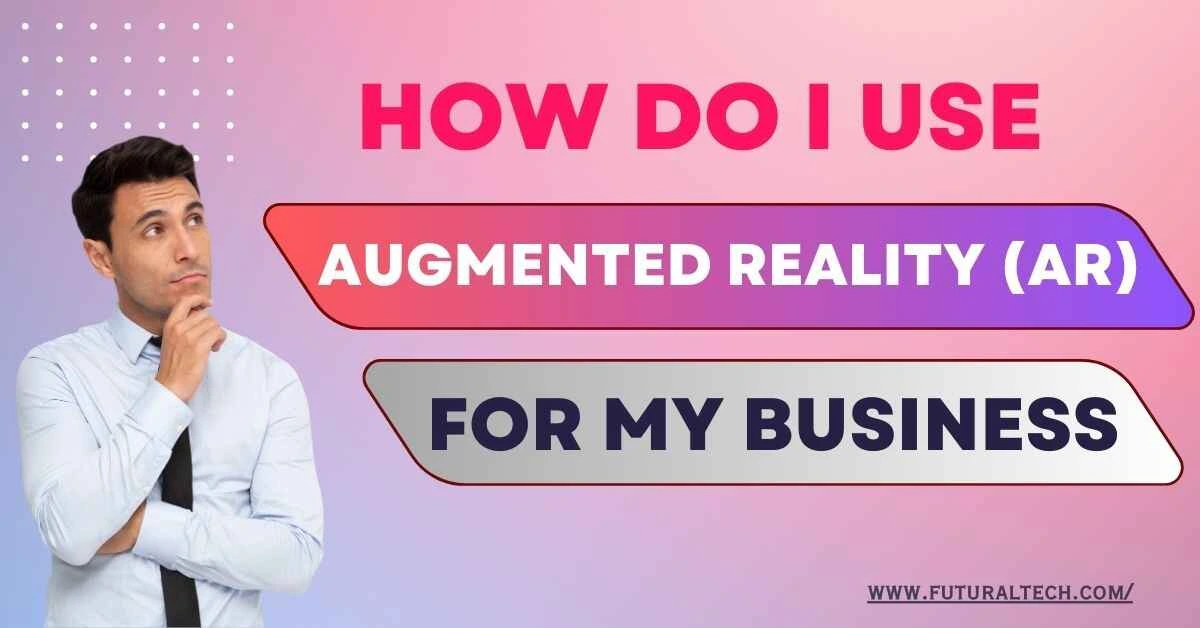Revolutionize Your Business: Unleash the Power of AR Marketing
By- Raj 6th-Jan-2025

Introduction
In a fast-moving business environment, one is required to be ahead of others. The most state-of-the-art and newest innovative tools in your arsenal today remain the Augmented Reality marketing techniques. AR can really revolutionize the way you reach out and communicate with a customer, build brand presence, and drive sales in the end. Now, how exactly does AR marketing transform an entire course in business? Join me in the powerful potential as we explore it—AR marketing, dynamically.
What is Augmented Reality?
Augmented Reality is a developed technology that overlaps digital content such as images, videos, and 3D models in the real world. This enhances the user's perception and interaction with their surroundings. Unlike Virtual Reality, which immerses the user in an utterly artificial environment, AR merges digital elements with the physical world, thus creating interaction and engagement.
The Rise of AR in Marketing
From the day of its invention, AR has covered a long distance. It began being popularized through games and entertainment; it was then vigorously taken up in different business fields, even entering the Marketing domain. Today, with the help of AR, brands design experiences that are unique and memorable, engaging audiences and setting them apart from their competitors.
Advantages of AR Marketing
- Higher Customer Engagement: AR realizes an immersive experience that will keep customers engaged longer and fosters a closer association with your brand.
- Higher Brand Recall: AR can strongly enhance the visibility and recall of your brand through innovative and interactive brand experiences.
AR Marketing Tools and Technologies
You want the right tools and technologies that can grant you access to AR marketing. Popular AR apps and platforms—such as Snapchat, Instagram, or even specially built AR apps like IKEA Place—allow businesses to create and distribute AR content with so much ease. Hardware would include AR-enabled smartphones, tablets, or even AR glasses, which are increasingly being made available to consumers.
AR in Retail Marketing
AR is changing the face of retail by creating interactive and personalized experiences wherein customers can 'try on' clothes or accessories or makeup virtually with the help of AR, thus helping them make better decisions for themselves.
- Interactive In-Store Displays: AR-powered in-store displays could do anything from displaying additional information and accumulating virtual tours to creating engaging experiences inside store displays that call for customer attention and retain them.
AR in Product Demos
How AR Changes the Way Businesses Present Their Products—in a Much More Compelling and Interactive Way:
- 3D Product Models: Customers can see products in 3D, from all sides, and get a feel for how they might fit into their lives.
- Real-Time Customization: AR allows for real-time customization of products, but better, a view for customers of what that customization might entail prior to a sale.
AR in Advertising Campaigns
AR can be used for much more engaging content in advertising campaigns. These include:
- Interactive Ads: AR will turn static ads into dynamic, exciting experiences for audiences.
- Gamified Marketing Experience: Brands will be in a position to create game-like experiences and challenges that trigger participation with the brand or entity.
Case Studies of Successful AR Marketing Campaigns
Many leading brands have successfully integrated AR into their campaigns. For instance, the AR app Nike enables customers to see how shoes will appear on their feet, thereby increasing the level of engagement and eventually sales. Similarly, the AR bus shelter campaign by Pepsi received huge attention for its depictions of fanciful scenes of people waiting at bus shelters, thereby drastically increasing brand recall and engagement.
Challenges and Limitations of AR Marketing
Despite its many benefits, AR marketing also comes with challenges:
- Technical Issues: Quality AR needs technical expertise and advanced software to be developed, hence acting as a barrier to some businesses.
- Application Costs: Integrating AR into business can be rather expensive, especially for small ones. However, the cost of AR development tools is dropping over time, making it quite affordable.
Future Trends in AR Marketing
The future for AR marketing is perfect; there are several emerging trends that are going to take over:
- Advancements in AR Glasses: With the continuous improvement and dropping prices of AR glasses, they are going to bring new dimensions to immersive marketing experiences.
- Integration with AI: If AR is combined with AI, then truly personalized and interactive experiences will be created for customers.
How to Implement AR Marketing in Your Business
If follow the given steps, then AR marketing in your business can be quite easy:
- Set up your goals: Succeed with AR marketing, either by raising brand awareness, driving sales, or improving customer engagement.
- Choose the appropriate tools: Pick AR apps and platforms that best suit your goals and target audience.
- Develop AR content: Think of engaging and interactive AR content that is valuable for customers.
- Train Your Team: Be sure that your team is fully trained in understanding how to use AR tools and technologies to their best potential.
- Measure and Adjust: Continuously measure the effectiveness of your AR campaigns and adjust accordingly.
How to Measure Success in AR Marketing
Track user engagement, conversion rate, and customer feedback as major indicators of the success of an AR marketing campaign. Track major metrics using analytics tools offered by AR platforms themselves in order to continue refining the strategy.
Industry-Specific Applications of AR Marketing
AR marketing is an extremely diversified field of activity and thus can be applied to almost any industry:
- Fashion and Beauty: Enhance the shopping experience of fashion and beauty through virtual try-ons and engaging advertisements.
- Real Estate: This will make it possible to have better portrayals of property targets through virtual property tours and interactive floor plans.
Conclusion
AR marketing is such a powerful solution to be able to provide your business with additional customer engagement, raise brand awareness, and boost your sales. With AR being developed and democratized further every day, now is certainly the best time to discover its high potential and add it to your marketing mix. From the frontline of this new trend in marketing, you should be able to create very much unforgettable experiences that set your brand as highly unique and enable your audience to fall under a spell using AR.











